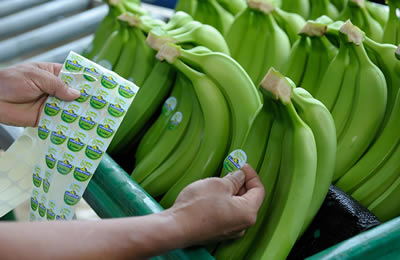Policymakers and practitioners specializing in non-tariff measures will gather at UNCTAD's NTM Week 2018 in Geneva from 9-11 October.
Tariffs are in the news like never before, with talk of trade wars and nations realigning their commercial ties across the world.
But while tariffs are generally recognized as a blunt instrument used by protectionists, they are far from the only phenomenon influencing trade flows across borders – and not even the most important, some analysts say.
Regulations on imported goods and products, either with the intention of limiting them, like quotas, or controlling them, like health and safety requirements, comprise a broad category of measures which can impact the scale and shape of trade with and between developing countries.
Voluntary standards with the aim of certifying sustainability credentials also fall into this category.
“Regulatory and non-regulatory measures have become more salient in international trade,” Ralf Peters, chief of the Trade Information Section in the Trade Analysis Branch of UNCTAD, said.
“They are used increasingly for trade and non-trade objectives, and impact all areas of our lives – social, environmental and economic.”
Such measures, called non-tariff measures (NTMs) by analysts to distinguish them from trade-restricting taxes levied on imports and exports, will take centre stage at UNCTAD’s Fourth NTM Week at the Palais des Nations in Geneva on 9–11 October.
“NTM Week 2018 will provide a platform for policymakers, practitioners and researchers to discuss cutting-edge issues surrounding the impact of NTMs on international trade and sustainable development,” Mr. Peters said. “Together, they will consider ways to shape sustainable trade amid protectionism.”
NTMs and SDGs
Participants will also discuss voluntary sustainability standards (VSS) – rules that producers, traders, manufacturers, retailers or service providers may be asked to follow so that what they do, make or grow does not harm people and the environment.
NTMs, including VSS, are sometimes called “behind-the-border” measures because their effect is felt away from customs posts. They can have both restrictive and beneficial impacts on trade, Mr. Peters said.
“On the one hand, onerous requirements can make it all but impossible for some traders to access some markets – think of, say, regulations on agricultural goods that make it hard for producers in Africa to sell into Europe,” he said.
“On the other hand, consumers want certain guarantees on the goods they buy – for example, chocolate where they know the cocoa was grown sustainably and paid for fairly. This kind of measure can even boost trade.”
This year’s NTM Week will consider how NTMs fit into the 2030 Agenda for Sustainable Development. Detailed mapping has shown how NTMs line up against the targets and indicators of the 17 Sustainable Development Goals that form the agenda’s core.
For example, to achieve Goal 8 on decent work and economic growth, governments can design policies to eradicate forced labour, protect labour rights and promote safe and secure working environments (Target 8.7 and 8.8). Those policies might affect trade, and they then correspond to NTM Code B4 on production or post-production requirements.
“For instance, cotton imported into Country A needs to come with a certificate (NTM Code B83) proving that it was not picked by children (NTM Code B41) in Country B,” explained Mr. Peters.
But World Trade Organization rules and the national legally binding regulations that flow from them have limits on what can be required of traders.
“Consumers and private companies often want to go beyond what complies with WTO rules. For example, they want to ensure that coffee farmers are paid fair wages or that no pesticides are used,” Miho Shirotori, chief of the Global and Regional Policy Analysis Section of UNCTAD’s Trade Analysis Branch, added.
“So, they buy fair trade or organic products to create de facto standards.”
Such VSS are offer increasingly important opportunities and challenges for developing countries.
Sharing information
Collecting data and making information available about NTMs is crucial for policymakers and practitioners alike in developing countries, and sessions at NTM Week will focus on the role and impact of:
National and regional regulatory coherence and cooperation
Channels connecting VSS to trade
International standard-setting bodies
Data innovations
Advances in research
Classification and the Multi-Agency Support Team on the taxonomy of NTMs
Transparency in trade regulations
Participants will be able to view a video from coffee growers in Lao Democratic Peoples’ Republic talking about the organic certification they need to sell into the United States of America and Japan.
The United Nations Forum on Sustainability Standards will also present its new flagship report on Voluntary Sustainability Standards, Trade and Sustainable Development on 11 October, together with country representatives of three established national multi-stakeholder platforms for VSS in Brazil, China and India.
The report provides evidence that when sectors like agriculture commit to proven standards regimes that build confidence in the sustainability of, say, cocoa from Brazil, the effect can be both direct and indirect. Standards like these can facilitate market access, but they can also create unnecessary barriers to trade.
The report was launched last month at the International Convention on Sustainable Trade and Standards in New Delhi, India.

